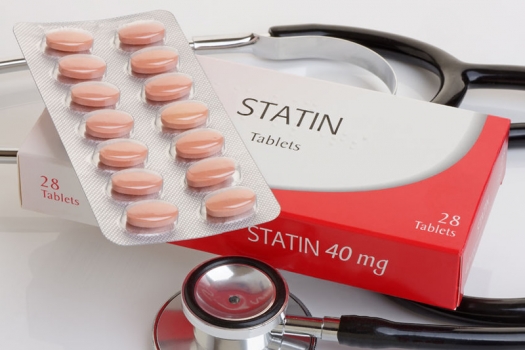You've probably heard about the JUPITER study published recently in the New England Journal of Medicine that touted the glories of Crestor (rosuvastatin), a cholesterol-lowering statin drug. It was widely reported that, compared to placebo, this medication reduced risk of serious cardiovascular problems such as heart attack or stroke by 50 percent, and deaths by 20 percent – in healthy people with normal LDL cholesterol levels.
The ensuing hoopla was predictable. "A breakthrough study" ... "a blockbuster" ... and my favorite, from none other than the president of the American College of Cardiology: "This takes prevention to a whole new level. Yesterday you would not have used a statin for a patient whose cholesterol was normal. Today you will."
Problem is, both the scientific summary and the news reports of this study are wildly misleading.
Confounding Conclusions
Reductions of 50 and 20 percent in relative risk for cardiac events and deaths certainly sound impressive, but let's take a closer look at the numbers. Of the 8,901 men and women in this study who took Crestor, 83 (0.9 percent) of them had a stroke, heart attack, or cardiovascular death, compared with 157 (1.8 percent) in a similarly sized group who took a placebo. Yes, the difference between 1.8 and 0.9 is a 50 percent reduction, but it's hardly worth writing home about. All it means is that just shy of 1 in 100 people actually received any benefit.
Another important measure when assessing the value and cost effectiveness of any therapy is the number needed to treat (NNT). According to Mark A. Hlatky, MD, of Stanford University, 120 people would have to take Crestor for about two years – at a yearly cost of $1,259 per person – in order to prevent one stroke, heart attack, or death!
Therefore, the cost to prevent each cardiac event (no matter how minor) is $287,000. From a public health and medical policy point of view, an NNT of that magnitude and cost is just nonsense. It would break the back of the country. Meanwhile, cheaper and more effective ways to tackle the problem are ignored.
Serious Side Effects
Then there are the significant safety issues. Statin drugs are notorious for depleting the body of coenzyme Q10 and causing muscle pain and weakness, fatigue, memory problems, liver toxicity, and a host of other negative effects – and Crestor is the strongest and most dangerous of them all. According to a post-marketing study from Tufts University, patients taking Crestor are much more likely to develop rhabdomyolysis (muscle breakdown) and kidney problems than those taking other statin drugs.
In the JUPITER trial, the group taking Crestor had a significantly greater incidence of diabetes. Other serious side effects were reported by about 15 percent of people in both the Crestor and placebo group. I was surprised that there were no appreciable differences until I realized that the study was terminated after just 1.9 years (it was supposed to run four to five years) – ostensibly so those in the placebo group could benefit from the drugs.
This is crazy! The safety of drugs typically prescribed for life cannot be adequately evaluated in two years. With long-term use, adverse effects of statins are not just probable, they're inevitable.
What About CRP?
As I mentioned earlier, the men and women in the JUPITER study were healthy and had normal cholesterol levels. That may seem a little odd since statins are best known for tackling high cholesterol. However, as we've discussed before (most recently in the June 2008 issue – visit the DrWhitaker.com Subscriber Center to read it again), low cholesterol is not the Holy Grail in cardiology. In fact, half of all heart attacks and strokes occur in individuals with normal LDL cholesterol.
So, the researchers targeted another biomarker linked with increased risk of cardiovascular disease: high-sensitivity C-reactive protein (CRP). CRP, which is also lowered by statins, is an indicator of inflammation in the body. A CRP level of less than 1 mg/dL is considered to confer a low risk of cardiovascular disease, 1 to 2.9 intermediate risk, and 3 or above high risk. All study participants had an initial CRP level of 2 or higher, and Crestor lowered it by an average of 37 percent.
I agree that it's good to bring CRP down. Inflammation plays multiple roles in cardiovascular disease, from damaging the arteries and triggering blood clots to promoting obesity. We've been measuring CRP levels at the clinic for years. However, we never prescribe statins to lower CRP. Instead, we use other therapies that are not only safe and inexpensive, but also engender overall health.
You Don't Need Statins to Lower CRP
Researchers from the University of California Berkeley published a clinical trial just a month before the JUPITER study showing that, compared to placebo, vitamin C decreased CRP by 34 percent in people with levels higher than 2 – virtually the same results as Crestor. (Why didn't this get any press?)
Krill oil, an omega-3 fatty acid supplement, has been found to bring down CRP by 30 percent. And although fish oil doesn't consistently reduce CRP, it, too, has enormous effects on other biomarkers of inflammation. Low blood levels of vitamin D have been linked with high concentrations of CRP as well, and Belgian researchers have found that even modest amounts of supplemental vitamin D (500 IU) can reduce CRP by 25 percent in ill patients.
A Mediterranean diet, which emphasizes lean protein, lots of plant foods, and olive oil, lowered CRP by 0.54 mg/dL in one study. There's also an inverse relationship between physical activity and CRP – the more you exercise, the lower your CRP.
Weight loss reduces CRP, which is dramatically illustrated in studies of patients who have undergone bariatric surgery. Depending on the amount of weight lost, CRP levels plummeted by as much as 75 percent.
Low-dose aspirin, magnesium, phytosterols, curcumin, ginger, proteolytic enzymes, and Irvingia gabonensis are also safe and inexpensive means of bringing down CRP and inflammation – and the benefits of all these therapies extend far beyond cardiovascular disease.
Stay Away From Statins
Pharmaceutical companies are already using the JUPITER study to encourage physicians to prescribe more statins. Policymakers, who are usually on the Big Pharma payrolls, are considering expanding guidelines for their use. And healthy patients, reading about this "wonder drug," are pestering their doctors for CRP tests and statin prescriptions.
Don't buy it. A high CRP level is no reason to take a statin drug. CRP goes up when there is inflammation anywhere in the body, and it doesn't matter whether it's caused by infections, arthritis, autoimmune disorders, diabetes, gingivitis, cancer, or another health condition. Furthermore, a high CRP level may be caused by a genetic variation that confers no increased risk of disease. So, using only CRP testing to prescribe statin drugs to the masses is manipulative and irresponsible.
The JUPITER study, like so much of the scientific literature, is little more than a drug infomercial. If you read the fine print at the end, you'll notice that 11 of the 14 authors receive grants, consulting, and/or lecture fees from a whole slew of pharmaceutical companies that manufacture statins.
The natural therapies described above are far superior to Crestor on all counts. They predictably and safely lower CRP, reduce risk of cardiovascular disease, and enhance multiple aspects of health. When lifestyle modifications and targeted nutritional supplements work this well, it's insane to subject low-risk patients to lifetime use of dangerous drugs – especially for a mere 1 in 100 chance of protecting against cardiovascular disease.
Recommendations
- Daily dosages for CRP-lowering therapies are vitamin C, at least 2,000 mg; aspirin, 81 mg; krill oil, 1-3 g; fish oil, 2-8 g; vitamin D, 2,000-4,000 IU; magnesium, 500 mg. Phytosterols, curcumin, ginger, and proteolytic enzymes such as Wobenzyme-N are available in various preparations and concentrations; use as directed. Look for these supplements in your health food store or order by calling 800-810-6655.
- Get at least 30 minutes of moderate exercise daily, and eat a Mediterranean diet rich in plant foods and lean protein to lower CRP and improve overall cardiovascular health.
- To learn more about the Whitaker Wellness Institute's safe, natural approach to treating and reversing heart disease, visit whitakerwellness.com or call 800-488-1500.
References
Agrawal V, et al. Relation between degree of weight loss after bariatric surgery and reduction in albuminuria and CRP. Surg Obes Relat Dis. 2008 Aug 5. [Epub ahead of print.]
Alsheikh-Ali AA, et al. The safety of rosuvastatin as used in common clinical practice? A postmarketing analysis. Circulation. 2005;111(23):3051–3057.
Block G, et al. Vitamin C treatment reduces elevated CRP. Free Radic Biol Med. 2008 Oct 10. [Epub ahead of print.]
Deutsch L. Evaluation of the effect of Neptune Krill oil on chronic inflammation and arthritic symptoms. J Am Coll Nutr. 2007;Feb 26(1):39–48.
Estruch R, et al. Effects of a Mediterranean-style diet on cardiovascular risk factors: a randomized trial. Ann Intern Med. 2006 Jul 4;145(1):1–11.
Hlatky MA. Expanding the orbit of primary prevention – moving beyond JUPITER. N Engl J Med. 2008 Nov 20;359(21):2280–2282.
Ridker P, et al. Rosuvastatin to prevent vascular events in men and women with elevated C-reactive protein. N Engl J Med. 2008 Nov 20;359(21):2195–2207.
Stein R. Blood test, statin afford potent shield, study says. Washington Post 2008 Nov 10.
Article copyright © 2009, Healthy Directions, LLC. Photocopying, reproduction, or quotation strictly prohibited without written permission of the publisher. Dr. Julian Whitaker's Health & Healing is dedicated to providing timely, accurate information by drawing on Dr. Whitaker's expert opinion and experience. Dr. Julian Whitaker's Health & Healing cannot offer medical services; we encourage readers to seek advice from competent medical professionals for their personal health needs. Dr. Whitaker will respond in the newsletter to questions of general interest.
Originally published in Health & Healing, Vol. 19, No. 1, January 2009. Used with permission.



